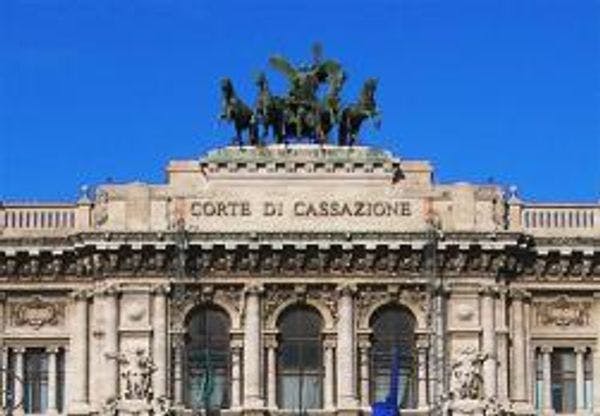Authoritative outcries challenge the present Italian drug legislation
By Giorgio Bignami, Forum Droghe
A few weeks before the general elections on 24-25 February, some important events have rocked the boat of Italian drug policies. Firstly, the Higher Court of Cassation (Corte di Cassazione) has determined that the purchase of drugs for group consumption is "criminally irrelevant", in opposition to one of the norms in the 2006 “Fini-Giovanardi” drug law. Secondly, the same Court has cancelled the conviction of an user caught in possession of an amount of drug above the "threshold" established for personal use.
Specifically, the Court has ruled that in the absence of other evidences, possession of drug amounts above the thresholds does not allow per se to presume that the subject is a pusher. Thirdly, the Rome Court of Appeals has decided to defer to the Constitutional Court (Corte Costituzionale) the case of two girls previously convicted for possession of small amounts of drugs. The Constitutional Court will decide whether the 2006 drug law, on which the conviction was based, violates some of the provisions in the Italian Constitution. In fact, the 2006 norms were a last-minute addition to the text of a Law by governmental decree (Decreto-legge) concerning a completely different matter - the financing of the 2006 XXth Winter Olimpic Games in Turin.
Moreover, it is doubtful that such a startling and brash procedure respected the "extraordinary need and urgency" clause, which is a qua non written in the Constitution for the recourse to Laws by decree, instead of the regular procedure. Finally, the Fini-Giovanardi may be incompatible with the equality of all citizens in front of the law, and also fail to respect some of the binding clauses in the European Union legislation. In the following weeks, more judges are expected to take initiatives similar to that of the Rome Court of Appeals. .
These developments are not bolts from the blue. In fact, the NGO Società della Ragione had recently established a memorandum showing that the present drug legislation does not meet the strict constitutional requirements for “laws by governmental decree”. Moreover, at the end of January a coalition of 16 Italian NGOs working in the fields of drug policies, justice and human rights (among them: Forum Droghe, Antigone, Magistratura Democratica, Società della Ragione, Coordinamento Nazionale Comunità di Accoglienza, Unione Camere Penali), deposited three bills “promoted by citizens” (leggi di iniziativa popolare) at the Court of Cassation, a procedure which follows the “bottom-up” process of law making established in the Italian Constitution. The bills will be discussed in Parliament, providing a minimum of 50,000 Italian citizens will sign them within 6 months. In addition, a web campaign has been launched on www.fuoriluogo.it , where an Appeal can be signed in support of the bill.
As for the three bills, one aims at challenging the abuses against prisoners by introducing the crime of “torture” in the penal code; the second, at improving the inhumane living conditions of prisoners due to the overcrowding and to the frequently debased conditions of Italian jails; the third one consists in the reform of the most deleterious norms in the 2006 drug legislation. Specifically, this bill provides a complete decriminalization of personal use of all drugs, re-establishes the distinction between hard and soft drugs, now all included in a single Schedule (the aforementioned Table I), introduces milder penalties for drug crimes of “minor relevance” and specific measures to promote alternative programs to incarceration for drug users.
The presentation of the three bills and the web campaign in support of them are an important step of the campaign “Drugs, Prisons and Human rights”, inaugurated by an Appeal addressed to the Italian premier Mario Monti and to the Parliament by prominent signatories involved in justice and drug policies, just a few weeks before the coming to an end of the legislature. The issues of this campaign have been endorsed by the Higher Council of Magistrates (“CSM - Consiglio Superiore della Magistratura”, the self governance authority of magistrates established by the Italian Constitution: in its proposals to address the prisons emergency, presented at the end of 2012, the CSM advocated an urgent shift in drug legislation, including a change in penalties for the main provision (art. 73 on trafficking and dealing), presently ranging from 6 to 20 years, to be reduced to 3-12.
On February 6th, the President of the Italian Republic, Giorgio Napolitano, after visiting the San Vittore prison in Milan, has made a solemn statement about “the living conditions in the Italian prisons which violate the Constitution". In the past months, the President has repeatedly urged the government and the Parliament for immediate actions to tackle the problem.
Keep up-to-date with drug policy developments by subscribing to the IDPC Monthly Alert.
